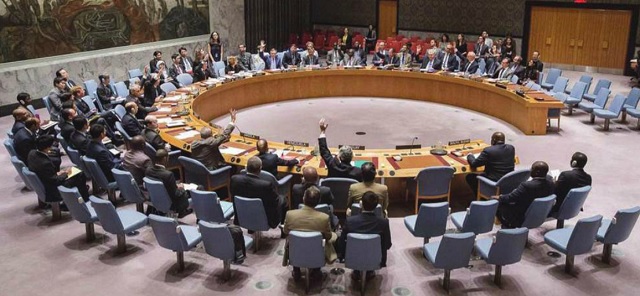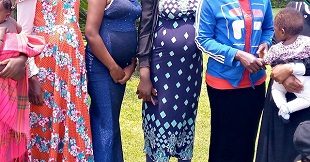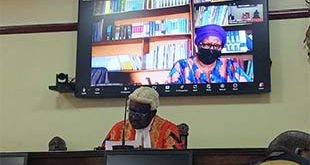
Juba, South Sudan | AFP |
The UN Security Council on Saturday urged South Sudan to drop its opposition to the deployment of a regional protection force to beef up a large UN peacekeeping mission in the war-scarred country.
Echoing a call made earlier Saturday by South Sudanese religious leaders, ambassadors from the council’s 15 member states met with senior government ministers in Juba and all spoke in favour of sending an additional 4,000 troops to the 13,000-strong mission, known as UNMISS.
One of the ambassadors, who asked not to be named, told AFP he thought the South Sudanese ministers “were surprised to see that the Security Council spoke with one voice.
“They were surprised by the tone of Russia, and also of China, which acted like someone who lost two peacekeepers.”
The two died when artillery fire hit a UN base during July clashes between forces loyal to President Salva Kiir and those of rebel leader Riek Machar.
The upsurge threatened a fragile peace accord signed last year to end a devastating 18-month civil war which left tens of thousands dead.
China and Russia abstained from an August 12 Security Council vote on the resolution that authorised deploying a protection force with a more robust mandate than that of UNMISS.
UNMISS faced considerable criticism over its failure to protect civilians during the July fighting.
So far Kiir’s government had rejected the idea of a new force, saying it would violate national sovereignty.
Those at Saturday’s meeting emerged on a conciliatory note.
“I want to assure the people of South Sudan that the rumour that the UN has come to impose on us and bring in foreign forces to take the freedom of our country is not there,” said Government Affairs Minister Martin Elia Lomoro.
Lomoro said the “modalities” of deploying the new force were being discussed but he did not state that his government had dropped its opposition.
US Ambassador Samantha Power said the meeting was “useful” because “we got to debunk, as the Security Council, some of the myths that have existed about what the Security Council has intended.
She added that proponents of the force had “one constituency in mind, and that is the people of South Sudan…with an eye to protecting them, to ensuring they get the humanitarian assistance they need. Some are facing famine-like conditions.”
Force needed ‘now’
Earlier Saturday, Catholic Archbishop Paulino Lukudu Loro told AFP: “This force should come, and it should come now. I think this force will help us to further implement this (peace) agreement,” .
“As a country, we cannot address this mess alone, we cannot put the country back on track alone. And there is no humiliation in this need to be assisted,” he said.
South Sudan descended into war in December 2013 after Kiir accused his former deputy Machar of plotting a coup.
Anglican Archibishop Daniel Deng Bul backed the intervention call, saying “the UN is momentarily the father of the people of South Sudan”.
Church leaders — both Catholic and Protestant — carry strong moral authority in Christian-majority South Sudan and bishops have played an important role in brokering past peace deals.
During the fighting in July, Machar, who had been persuaded to return to Juba as part of the national unity government agreed under the peace deal, fled the country and is now in Khartoum, having been replaced by Taban Deng Gai in Juba.
Aside from the tens of thousands of people killed, the United Nations has reported shocking levels of brutality including gang-rapes and the wholesale burning of villages.
An estimated 16,000 children have been recruited by armed groups and the national army in the conflict and 2.5 million people have been driven from their homes.
 The Independent Uganda: You get the Truth we Pay the Price
The Independent Uganda: You get the Truth we Pay the Price


